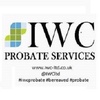In the realm of estate planning and inheritance, navigating the intricacies of taxes can be daunting. In the UK, inheritance tax is a significant consideration for many individuals and families. This is where inheritance tax specialists come into play, offering expertise and guidance to ensure that assets are managed and passed down efficiently. Additionally, living trusts can be a valuable tool in mitigating inheritance tax liabilities. Let's delve deeper into these concepts.
How Inheritance Tax Specialists Can Help
Inheritance tax specialists are professionals who specialize in providing advice and assistance with inheritance tax planning. They possess in-depth knowledge of tax laws and regulations, helping individuals and families minimize their inheritance tax liabilities legally. These specialists work closely with their clients to develop bespoke strategies tailored to their unique financial circumstances.
How Inheritance Tax Works in the UK
In the UK, inheritance tax is levied on the estate of a deceased person above a certain threshold. As of 2024, this threshold stands at £325,000 for individuals. Anything above this threshold is subject to a tax rate of 40%. Inheritance tax applies to assets such as property, investments, savings, and possessions.
How Inheritance Tax Specialists Provide Guidance
Inheritance tax specialists assess their clients' estates and financial situations to identify opportunities for tax planning. They offer recommendations on various strategies, such as making use of exemptions and reliefs, gifting assets, setting up trusts, and drafting wills. By implementing these strategies, individuals can reduce the value of their estate subject to inheritance tax, ultimately preserving more wealth for future generations.
How Living Trusts Can Help
A living trust, also known as a revocable trust, is a legal arrangement in which assets are placed into a trust during one's lifetime. The individual creating the trust, known as the grantor, retains control over the assets and can modify or revoke the trust as needed. Upon the grantor's death, the assets held in the trust are distributed to the beneficiaries according to the terms outlined in the trust document.
How Living Trusts Address Inheritance Tax
Living trusts can play a crucial role in minimizing inheritance tax liabilities. By transferring assets into a trust, the value of those assets is effectively removed from the grantor's estate for inheritance tax purposes. This can result in significant tax savings, as the assets held in the trust are not subject to the same tax rates as those held directly by the individual.
How Living Trusts Offer Flexibility
One of the key advantages of living trusts is their flexibility. Unlike wills, which become public documents upon the grantor's death and are subject to probate proceedings, trusts offer privacy and expedited asset distribution. Additionally, living trusts can be structured in a way that allows for ongoing management of assets, ensuring that beneficiaries are provided for according to the grantor's wishes.
How to Establish a Living Trust
Establishing a living trust typically involves drafting a trust document outlining the terms and conditions of the trust, appointing a trustee to manage the trust assets, and transferring assets into the trust's name. While setting up a living trust requires careful consideration and legal expertise, the benefits it offers in terms of estate planning and inheritance tax mitigation can be substantial.
How to Seek Professional Advice
For individuals and families seeking to optimize their estate planning and minimize inheritance tax liabilities, consulting with inheritance tax specialists and legal professionals is essential. These experts can provide personalized advice and guidance tailored to individual circumstances, helping to ensure that assets are protected and passed down efficiently to future generations.
In conclusion, inheritance tax specialists play a vital role in assisting individuals and families with estate planning and inheritance tax mitigation in the UK. By leveraging their expertise and guidance, along with tools such as living trusts, individuals can navigate the complexities of inheritance tax laws and preserve more of their wealth for their loved ones.


No comments yet